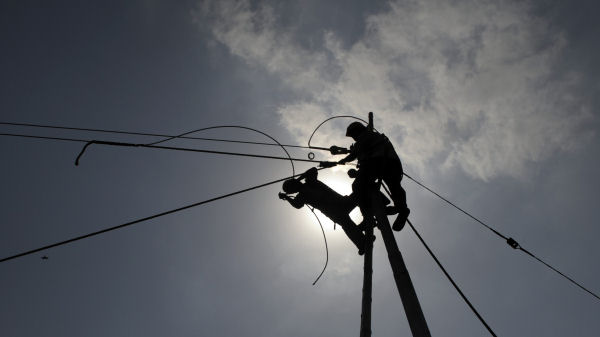India attacks western ‘hypocrisy’ on energy
Economics Editor Faisal Islam reports on India’s power surge as the country ramps up its plan to connect the entire population to electricity, telling the west to stop preaching over climate change.
In the coming years India plans to connect a further 500 million people into the electricity grid.
But as the energy-thirsty middle class grows and more power is required by India’s growing export industry, India finds itself in a crisis over energy.
Channel 4 News Economics Editor Faisal Islam travelled to West Bengal and spoke exclusively to India’s Environment Minister Jairam Ramesh who criticised what he called the “constant preaching from Ed Miliband” about China and India.
Rich nations were, he said, in denial about the need for “fundamental lifestyle changes” in their “affluent societies”.
He pointed to his British counterpart and fellow negotiator at the recent Copenhagen climate summit, saying: “I can tell you that Ed Miliband’s carbon footprint is probably 20 times my carbon footprint”.
“Indian emissions are survival emissions. In the west they are lifestyle emissions, so I would tell my environmentalist friends to change their lifestyles before they preach to us as to what our development strategy should be,” said Mr Ramesh.

“Indian emissions are survival emissions. In the west they are lifestyle emissions, so I would tell my environmentalist friends to change their lifestyles before they preach to us as to what our development strategy should be,” said Mr Ramesh.
The minister ruled out hopes of a more formalised deal to build on the “disappointing” Copenhagen agreement, saying: “These are very difficult issues – because the western countries don’t want to compromise on lifestyle and we cannot compromise on our developmental priorities. So I don’t see how we break out of this logjam”.
“Indian emissions are survival emissions. In the west they are lifestyle emissions.” Jairam Ramesh
The intervention comes days ahead of a key meeting of the basic group of emerging countries (including China and India, as well as Brazil and South Africa) hosted by Mr Ramesh in New Delhi next week.
The meeting will see this vital economic bloc agree a common position ahead of a 31 January deadline to outline specific measures to fulfill the limited Copenhagen agreement.
He stressed that India was “very aggressively” committed to its own domestic climate plans but would not subject itself to external constraints.
“Internationally legally binding commitments? No. Till such a time that the developed countries demonstrate a degree of seriousness to reduce their level of emissions.”
Mr Ramesh spoke to Channel 4 News from the heart of India’s Sunderbans mangrove forest and tiger reserve.
The series of islands in the Ganges delta is acutely exposed to rising sea levels. Already, four islands have been submerged by rising sea levels and the after-effects of a deadly cyclone.

But Mr Ramesh directly blamed the energy required to fuel European and north American lifestyles for such environmental vulnerabilities.
“This constant preaching from Ed Miliband, for example [about] India and China, he became an evangelist you know on India and China, but what about the responsibility of the Americans, the British and the Germans to change the manner of their lifestyles?
“I think it is hypocritical on the part of the western nations to deny that it is unsustainable lifestyles that are leading to global warming and thereby climate change and the impact that you are going to see in places like the Sunderbans.”
“What about the responsibility of the Americans, the British and the Germans to change the manner of their lifestyles?”Jairam Ramesh
He confirmed plans to connect one billion Indians into the electricity network in the coming years, and admitted that coal will fuel 50 per cent of India’s rapidly accelerating power generation.
Despite the vulnerability of human lives and of the environment, India is proving immune to international pressure on carbon emissions.
In the very place where climate change could cause most damage to mankind, India seems clear: the climate change crisis is a matter for the west and its profligate lifestyles.
-
Latest news
-
As India goes to the polls in the world’s largest election – what do British-Indians think?6m

-
Tees Valley: Meet the candidates in one of the biggest contests coming up in May’s local elections4m

-
Keir Starmer says public sector reform will be a struggle7m

-
Nicola Sturgeon’s husband Peter Murrell charged with embezzlement of funds from SNP1m

-
Ukraine might finally get $60billion in American weapons and assistance to defend against Russia3m

-




